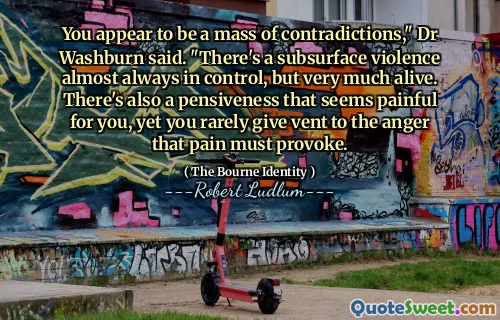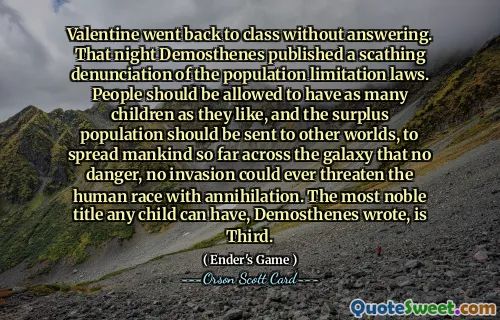They trespassed upon my thoughts. They were intruders whose knowledge of life was to me an irritating pretense, because I felt so sure they could not possibly know the things I knew. Their bearing, which was simply the bearing of commonplace individuals going about their business in the assurance of perfect safety, was offensive to me like the outrageous flauntings of folly in the face of a danger it is unable to comprehend. I had no particular desire to enlighten them, but I had some difficulty in restraining myself from laughing in their faces, so full of stupid importance.
The narrator expresses a deep frustration towards those around him, perceiving them as intruders in his thoughts. He feels that their superficial understanding of life is a feeble pretense and believes they cannot grasp the complex realities he knows. Their confidence appears naive and offensive to him, as if they are oblivious to the dangers lurking beneath their mundane existence. This disparity fuels his irritation and mockery towards their ignorance.
He wrestles with the temptation to ridicule them, finding their self-importance laughable in light of the truths he perceives. The narrator's disdain reflects a profound sense of isolation and a struggle to engage with those who seem part of a world that is dangerously unaware of its own limitations. His internal conflict highlights the tension between knowledge and ignorance, as well as the vulnerability that comes with deeper understanding.





